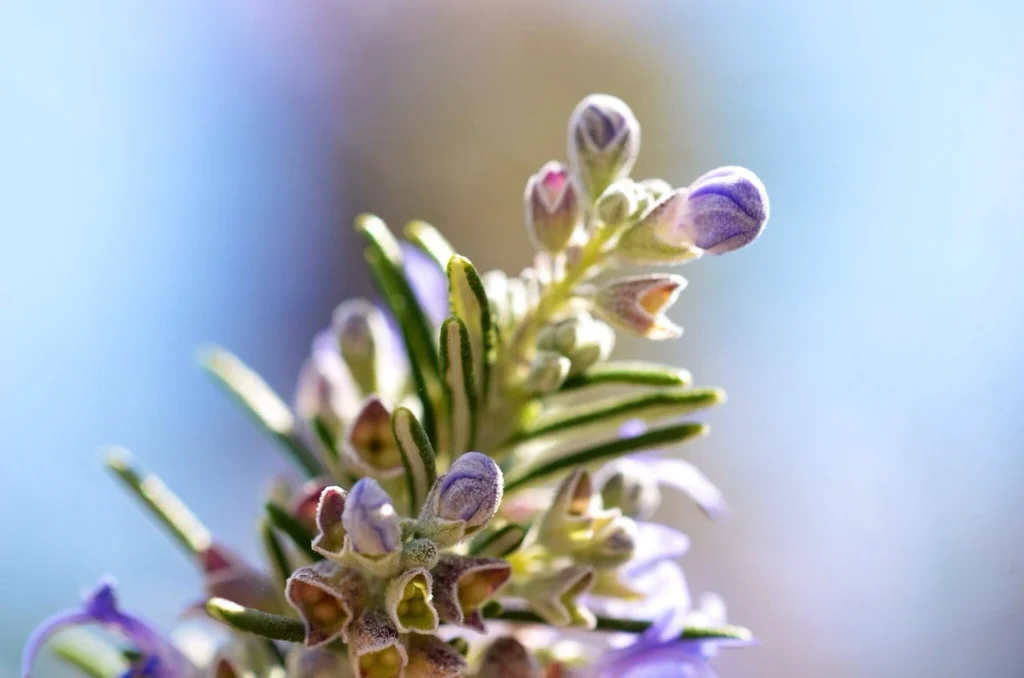When you think of rosemary, the first thing that likely comes to mind is the aromatic herb used in cooking. But what about “rosemary berry”? Does rosemary produce berries? Or is this a misconception? Here, we’ll explore the truth behind rosemary, its possible connection to berries, and its uses in cooking and beyond.
What Is Rosemary?
Rosemary (Rosmarinus officinalis) is a popular evergreen herb originating from the Mediterranean region. It is often used in culinary dishes for its fragrant, pine-like aroma and slightly bitter taste. The leaves, which resemble pine needles, are what we commonly associate with rosemary. However, the idea of a rosemary berry is a point of confusion for many.
Does Rosemary Produce Berries?
The short answer is: No, rosemary does not produce berries. While the plant can flower and produce seeds, it doesn’t bear any fruit or berries. Rosemary is part of the mint family, and like other herbs in this family, its primary use comes from its leaves rather than any kind of fruit.
This misconception may stem from the plant’s small, blue, or purple flowers that appear in late spring or early summer. These flowers can sometimes be mistaken for berries due to their round shape. However, they are simply blossoms, not fruit-bearing structures.
Common Uses of Rosemary
Despite the fact that rosemary does not produce berries, its leaves and flowers are widely used in various applications:
- Culinary Uses: Rosemary is a staple in Mediterranean cuisine, frequently used to season meats like lamb and poultry. It also adds flavor to roasted vegetables, soups, and bread.
- Aromatherapy: Due to its strong scent, rosemary is popular in essential oils and can help with relaxation and mental clarity.
- Herbal Remedies: Traditionally, rosemary has been used in herbal medicine to boost memory, relieve pain, and improve digestion.
What Are 5 Benefits of Rosemary Herb?
Rosemary is more than just a flavorful herb used in cooking; it also offers several health benefits. Here are five key advantages of using rosemary:
- Rich in Antioxidants
Rosemary is packed with antioxidants that help neutralize harmful free radicals in the body, reducing inflammation and supporting overall health. - Improves Digestion
Traditionally, rosemary has been used to alleviate indigestion and promote healthy digestion. Its compounds can help reduce bloating and stimulate bile production. - Enhances Memory and Focus
Rosemary is renowned for its ability to enhance cognitive function. Studies have shown that the aroma of rosemary can improve concentration and memory retention. - Anti-inflammatory Properties
Rosemary contains anti-inflammatory compounds like rosmarinic acid, which can help relieve pain and reduce inflammation, especially in conditions like arthritis. - Boosts Immune System
With its antimicrobial properties, rosemary can help strengthen the immune system, protecting the body against infections and common illnesses.

Why Is There Confusion About Rosemary Berries?
The confusion around “rosemary berries” could stem from a few sources. Here are some possible reasons:
- Visual Confusion: As mentioned earlier, the small flowers of rosemary could be mistaken for berries. However, they are only blooms.
- Mistranslations or Miscommunications: In some cultures or regions, the term “berry” may be used loosely to describe small, round fruits or flowers, leading to the misconception.
- Similar Plant Names: Some herbs and plants have names that include both a fruit and an herb (e.g., “elderberry” or “juniper berry”), which might lead people to believe rosemary has a berry variant.
Can You Eat Rosemary Flowers?
While rosemary does not produce berries, its flowers are indeed edible. These small, delicate blooms have a milder flavor compared to the leaves and can be used to garnish dishes or add a subtle flavor to meals. They work well as a decorative element on salads, desserts, and drinks.
How to Use Rosemary in Cooking?
Rosemary leaves are widely versatile. Whether dried or fresh, they bring a robust flavor to various dishes. Below are some ways to incorporate rosemary into your cooking:
- Meat Marinades: Add rosemary to olive oil, garlic, and lemon for a simple yet flavorful meat marinade.
- Roasted Vegetables: Toss chopped rosemary leaves with vegetables like potatoes, carrots, or squash before roasting them.
- Herb-Infused Oils: Make your own rosemary-infused oil to drizzle over bread, pasta, or salads.
- Baked Goods: Fresh rosemary can be chopped and mixed into bread doughs like focaccia for a fragrant twist.
What to Do if You’re Looking for Berries in Herbs?
If you’re on the hunt for berries that come from herbs, rosemary won’t be your solution. However, there are several herbs and shrubs that produce edible berries:
- Juniper Berries: These come from the juniper shrub and are often used to flavor gin and various dishes, especially in European cuisine.
- Elderberries: Known for their immune-boosting properties, elderberries are frequently used in syrups, teas, and jams.
- Bayberry: While not widely used in cooking, bayberry plants produce small berries that are used for medicinal purposes and to make candles.
Growing Rosemary: Tips for Cultivating at Home
If you love rosemary and want to grow it at home, here are a few tips:
- Sunlight: Rosemary thrives in full sunlight, so place it in a sunny spot if you’re growing it indoors or outdoors.
- Watering: Be careful not to overwater your rosemary. This herb prefers well-drained soil and can handle some drought once established.
- Pruning: Regular pruning helps the plant grow fuller and healthier. Remove any dead or yellowing leaves and trim back the branches to maintain shape.
Where to Buy Fresh and Dried Rosemary?
If you’re not interested in growing your own rosemary but want to use it in your cooking or other applications, here are some great places to buy it:
- Local Grocery Stores: Fresh rosemary is often available in the produce section, while dried rosemary can be found in the spice aisle.
- Farmers Markets: For the freshest and most flavorful rosemary, check your local farmers market. You may also find organic or pesticide-free options.
- Online Retailers: You can easily purchase both fresh and dried rosemary from online marketplaces like Amazon, Walmart, and specialty herb stores.
Conclusion: Rosemary, No Berries, But Plenty of Uses
So, does rosemary have berries? The answer is no, but this amazing herb offers so much more! Whether you’re using it for cooking, aromatherapy, or health benefits, rosemary has a place in every kitchen. While the confusion over “rosemary berries” persists, you can now confidently use rosemary leaves and flowers in your recipes, knowing there are no berries involved.
FAQs
Does rosemary have fruit?
No, rosemary does not produce any fruit. It is an herb that primarily grows leaves and small flowers. While some people might confuse its flowers for fruit, rosemary is not a fruit-bearing plant.
What berries go with rosemary?
Though rosemary itself doesn’t produce berries, it pairs wonderfully with certain berries in culinary applications. Blueberries and cranberries complement rosemary’s earthy flavor when used in sauces, marinades, or baked goods like tarts and breads.
Does rosemary give flavor?
Yes, rosemary is highly valued for its bold, aromatic flavor. It adds a pine-like, earthy, and slightly bitter taste to dishes, making it a popular herb for seasoning meats, vegetables, and even breads.
What does rosemary smell of?
Rosemary has a distinct, refreshing scent. It is often described as piney, woody, and slightly minty with hints of citrus. This invigorating aroma makes it popular in cooking, as well as in aromatherapy.









